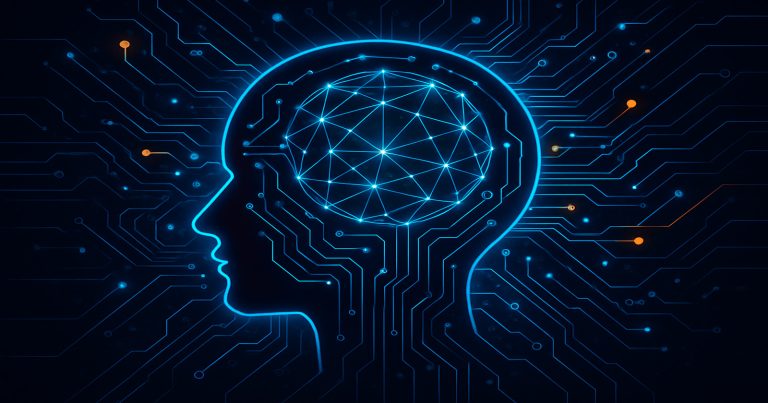Cyberspace is the virtual world where people connect, share, work, and communicate through the internet. It includes everything we interact with online—websites, apps, social media, emails, digital banking, and games. This space does not have physical borders, but it impacts our lives as strongly as the real world does. From online shopping to international video calls, modern human interaction thrives in cyberspace. As technology keeps advancing, cyberspace is expanding too. It connects billions of users daily and has become the foundation for education, business, entertainment, and social life. It supports how people access information, make money, and build digital communities. Cyberspace is central to human progress, blending digital tools with real-world needs.
What is Cyberspace?
Cyberspace is the online environment of computers, servers, networks, and digital platforms that allow people to interact without being physically present. It’s where emails are sent, messages are posted on social media, and files are stored in cloud services. Every time people use a mobile app or visit a website, they operate in cyberspace. This digital domain powers everything from video calls and online exams to business meetings and bank transfers.
Although it is not something you can touch, cyberspace is real and powerful. It allows governments to operate more efficiently, businesses to run without physical stores, and students to learn from home. It has broken the boundaries of geography and time, letting people do more, faster, and with fewer limitations. It is the most significant change to human interaction since the invention of electricity.
History of Cyberspace: From ARPANET to AI & IOT
Cyberspace started taking shape in the 1960s when the U.S. government created ARPANET, one of the world’s first digital networks. In 1984, author William Gibson coined “cyberspace” in his novel Neuromancer, describing it as a virtual world where humans and machines connect. This concept quickly grew from fiction to reality with the arrival of the World Wide Web in the 1990s, which made the internet available to the public.
Over the decades, cyberspace has grown rapidly. In the early 2000s, social media and e-commerce platforms became part of everyday life. Today, technologies like artificial intelligence, the Internet of Things, and cloud computing continue to expand their reach. Cyberspace is no longer a trend—it is the core structure of how modern society works, interacts, and evolves.

Cyberspace vs Physical World
Cyberspace and the physical world serve similar functions but work in different ways. The physical world directly includes everything we can see, touch, and experience. In contrast, cyberspace exists digitally—a network of data and code where people interact through screens and devices. In cyberspace, transactions happen instantly, conversations span continents, and businesses operate 24/7 without needing a physical presence.
Both worlds have value, but cyberspace has its risks. Theft in the physical world is usually interpreted as someone taking away your wallet. In cyberspace, it is gaining access to your bank account illegally. Security, identity, and trust operate differently in the environment that cyberspace created. The convenience of cyberspace, yet again, draws in people from all corners of the globe. Whether using it for an online meeting or in making a digital payment, the divide between the digital and the physical is quickly closing.
Cyberspace vs Physical World: A Comparative Table
| Aspect | Cyberspace | Physical World |
| Nature | Virtual, exists as data and code | Tangible, can be seen and touched |
| Location | Exists online, across devices and networks | Exists in real geographic spaces |
| Interaction | Happens through screens, apps, and devices | Involves face-to-face communication or physical contact |
| Availability | 24/7 access, no time or space limits | Limited by time zones, distance, and physical presence |
| Transactions | Instant, digital, and global | Requires physical movement, may take time |
| Security Risks | Hacking, data breaches, and identity theft | Theft, fraud, and physical harm |
| Trust Mechanism | Verified through passwords, encryption, and digital IDs | Built on personal presence, documents, and physical evidence |
| Regulation | Governed by cyber laws and international digital policies | Governed by national/local laws and physical jurisdiction |
| Business Operations | Operates virtually, through websites and apps | Requires offices, shops, and warehouses |
| Convenience | Highly convenient, faster access to services | Can be time-consuming and limited by physical barriers |
Cyber Laws and Cybersecurity
As people spend more time online, laws are needed to keep cyberspace safe and fair. Cyber laws are legal rules that guide how individuals and organizations should behave online. They cover data protection, intellectual property, digital business practices, and online crime. These laws help prevent identity theft, online scams, and illegal content distribution. They ensure people are held accountable for harmful behavior in cyberspace.
Cybersecurity, on the other hand, focuses on the technical side of protection. It includes tools and techniques to defend systems, networks, and data from cyberattacks. This means using software, setting strong passwords, encrypting files, and training users to recognize threats. Together, cyber laws and cybersecurity create a safer digital environment where people can interact, work, and grow without constant fear of cybercrime.
Types of Activities in Cyberspace
This section helps readers understand the scope and applications of cyberspace. Many people search for what can be done in cyberspace, especially students, job seekers, and general internet users
Personal Activities
Cyberspace allows individuals to connect through social media, email, video calls, and messaging apps. People also stream videos, play games, read news, and participate in online communities. These activities form the social and entertainment side of the digital world.
It also includes e-learning, job applications, and health services. People schedule doctor appointments, attend online classes, or pay bills, all from cyberspace. For many, it is now the main way of managing daily life.
Business and Professional Activities
Companies use cyberspace to run e-commerce platforms, manage supply chains, market products, and provide customer support. Businesses now operate digital storefronts, hold virtual meetings, and even sign contracts online. Professionals use tools like Slack, Zoom, and Google Workspace to stay productive from any location.
With the ability to work and earn entirely in cyberspace, freelancers and remote workers are now using cloud-based storage, CRM platforms, and financial tools to do business anywhere around the globe. In so doing, cyberspace has brought in newer jobs and industries that have become critical to modern employment.
Cyberspace allows governments to launch e-governance, create communication policies, deliver public services, and conduct educational outreach. Many processes are moving online, including settling tax returns, registering companies, or applying for licenses. This promotes transparency and expediency in governance.
Institutions such as universities and hospitals also function in cyberspace. From the application phase in college to viewing reports on medical tests, services have become faster and more accessible for users.
The Future of Cyberspace
Technologies like 5G, blockchain, AI, machine learning, and metaverse are redefining cyberspace. The rise of smart homes, autonomous cars, and remote surgeries is possible due to advancements in cyberspace technologies. AI bots and voice assistants like Alexa or Siri show that hyberspace is becoming more interactive and intuitive. Virtual reality (VR) and augmented reality (AR) blend physical and digital experiences. Users will soon attend virtual offices, concerts, and classrooms, making cyberspace a fully immersive environment.
Cybersecurity and Ethical Challenges
Data privacy, misinformation, and cybercrime are increasing as more people are online. The future of cyberspace must address issues like deepfakes, ransomware, surveillance, and the ethical use of AI. Governments and tech companies must create frameworks that protect users without restricting innovation. Users will also need more digital literacy. Understanding how to stay safe online, protect personal information, and identify threats will be essential life skills.
Opportunities for Global Inclusion
Cyberspace holds the potential to bridge global gaps. Through online education, digital banking, and virtual work, people in remote or developing areas can access opportunities once limited to big cities. As internet access improves, cyberspace could become the key to reducing global inequality. Its future also promises sustainable development by reducing travel, paperwork, and pollution. A smarter, cleaner, and more connected world is within reach—if cyberspace is managed well.
Why Cyberspace is Important in the Modern World?
Cyberspace is essential because it supports almost every part of modern life. It helps businesses run, schools teach, doctors diagnose, and people stay in touch with loved ones. It speeds up communication, reduces costs, and brings services to people far from cities. In short, it makes life easier, more connected, and more productive for millions worldwide.
At the same time, cyberspace drives economic growth by creating digital jobs, remote opportunities, and online markets. It allows startups to reach global customers and students and access global knowledge. It is also a hub for creativity and innovation, helping people solve problems, invent new tools, and share ideas. But to keep enjoying its benefits, we must invest in safety, legal awareness, and digital education.
Cyberspace Meaning FAQs
What is cyberspace in simple words?
Cyberspace is the online world where people connect, communicate, and share information using the internet.
Who introduced the term ‘cyberspace’?
In his science fiction novel Neuromancer, William Gibson coined” cyberspace” in 1984.
How is cyberspace different from the physical world?
Cyberspace is virtual and online, while the physical world is real and can be seen and touched.
What are cyber laws?
Cyber laws are rules that protect people and businesses from harm while using the internet.
Why is cybersecurity critical today?
Cybersecurity protects users and systems from digital threats like hacking, fraud, and data theft.


